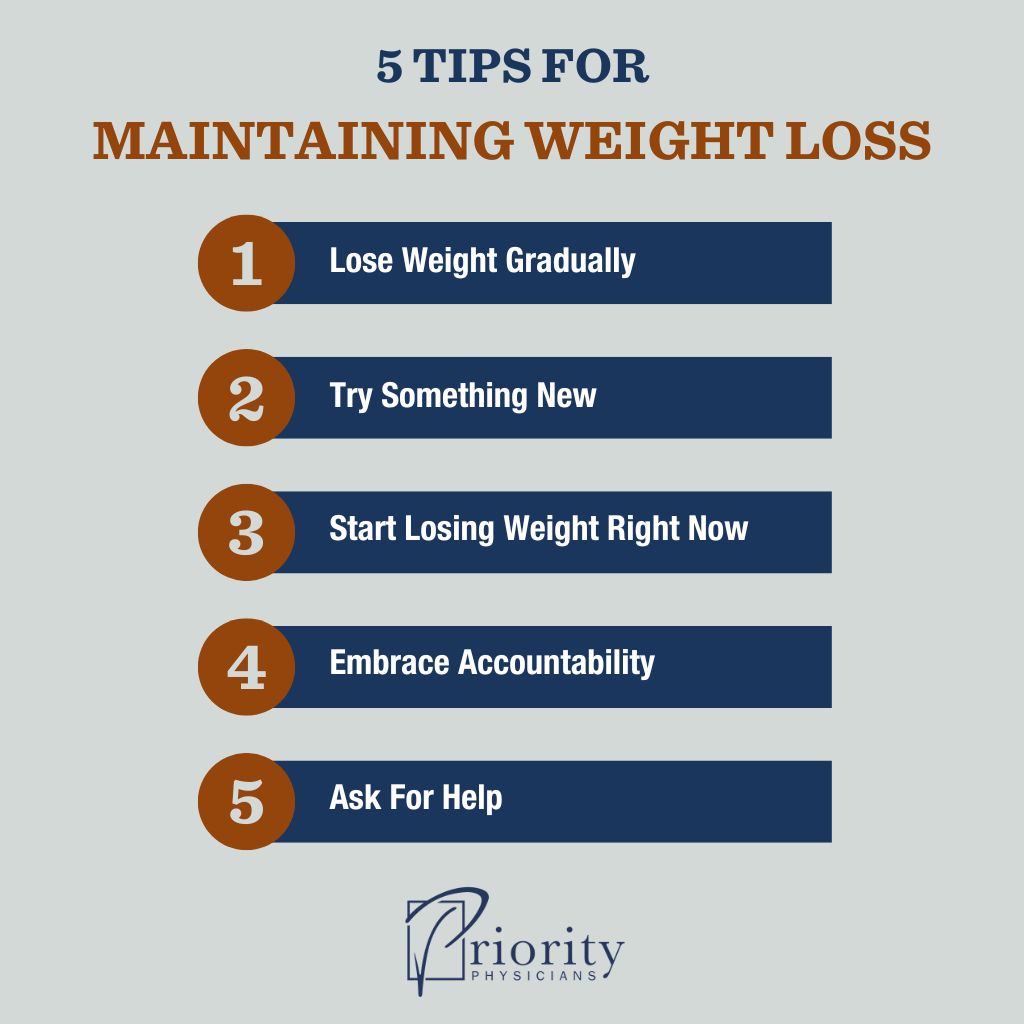Research indicates that 80% of people who shed significant body fat won’t maintain that weight loss for 12 months.
We know how difficult it can be to lose weight. There are so many diets and exercise routines out there that claim to eliminate those pesky pounds. But how often do we talk about the difficulty of maintaining weight loss? Not very.
So, which is harder? Losing weight, or maintaining weight loss?
Losing Weight vs. Maintaining Weight Loss
Which do you think is more difficult to climb: Mount Everest, or Mount Denali?
Climbing either mountain is going to be hard, but one is probably objectively harder. The same comparison can be applied to the difficulty of losing weight versus the difficulty of maintaining weight loss. Both are going to be challenging, but here, we’re going to say maintaining weight loss is harder.
In general, I think maintaining weight loss is harder because people aren’t mentally prepared for it. They’re prepared to feel hungry and exercise daily to lose weight, but when they reach their goal, they don’t realize they have to work just as hard to maintain it. It catches a lot of people off guard.
I want to note that there are an incredible amount of unhealthy hacks and shortcuts you can use to “cheat” your way to weight loss. A lot of diets people follow to lose weight have a defined beginning and end, and they’re difficult to maintain over time because the habits they build aren’t sustainable.
If you were to take a helicopter to the top of either Everest or Denali, you’d only be able to stay up there for a few minutes because your body wouldn’t have adjusted to the low amount of oxygen in the air. But if you climbed the mountain slowly, you could enjoy your time up there longer because your body acclimated to the changes in elevation as you went.
Simply put, it’s harder to maintain weight loss when you “cheat” to get there.

How to Improve Your Chance of Maintaining Weight Loss
So, how do you keep weight off once you lose it? Here are my tips.
Lose Weight Gradually So It Can Be Sustained
Studies show clearly that weight lost slowly is much more likely to stay off. People who lose weight quickly are likely to gain almost all of it back. That’s because when you lose weight slowly, you’re solidifying lifestyle changes you can sustain long-term.
For example, when you lose weight quickly by eating only 500 calories a day, you’re setting yourself up for long-term failure. Eating 500 calories every day is not sustainable for the rest of your life, and you can only trick your body into losing weight quickly so many times.
Try Something New
Our bodies are amazing at adapting. This has served us well through evolution, but can have interesting implications for weight loss.
Our bodies are actually designed to hold on to excess calories and fat — because in the overall context of human history, having food readily available is new to us. Humans have never had to moderate our calorie intake to the extent we need to now.
You have to trick your body, so to speak, to actually lose weight. For example, if you start running and lose a lot of weight, then quit running, you’ve tricked your body into losing weight a certain type of way. If you start running again 20 years later, you’re not going to lose the same amount of weight.
Start Losing Weight Right Now
The best time to start losing weight is yesterday.
The older you get, the harder it is to lose weight and maintain that weight loss. You’re never going to be as young as you are right now, so the sooner you try to lose weight, the better chance you’ll have of losing it and maintaining weight loss over time.
Embrace Accountability
Having a friend or partner who will hold you accountable to your goals will make you more successful. We’re great at lying to ourselves, but so not great at lying to others!
We can be our own worst enemy. We’d rather get an extra hour of sleep than get up and exercise, or cheat a little and have dessert every night. But an accountability partner will call you out on decisions you wouldn’t call yourself out on.
When you’re trying to make big lifestyle changes, having a partner who will make them with you makes the weight loss journey infinitely easier.
Ask for Help
Losing weight is difficult, and maintaining weight loss even more so. If you’ve already done the hard work of losing weight, it can be emotionally damaging to watch the number on the scale slowly creep back up.
In this case, talk to your physician. There are lots of great medications and supplements out there that can help you sustain a lower weight. Of course, this isn’t a substitute for healthy lifestyle changes — but it’s an extra resource to help.

